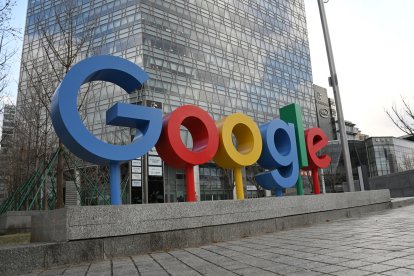ANALYSIS.
A federal judge rules that Google monopolized internet advertising
The ruling gives seven days to present a schedule of corrective measures to the tech giant, which has already announced it will appeal.

The Wall Street Journal had access to an internal Google email.
Federal Judge Leonie Brinkema ruled that Google monopolized the internet advertising market. According to her ruling, Brinkema believes the plaintiffs proved that the tech giant engaged in a series of "anti-competitive" actions to achieve its goals.
"Google deliberately undertook a series of anticompetitive actions to acquire and maintain monopoly power. For more than a decade, Google linked its ad serving server and ad exchanges through contractual terms and technological integration, which enabled the company to establish and protect its monopoly position in these two markets," reads the ruling by Brinkema, a Bill Clinton appointee.
Moreover, according to the district judge, the company "secured its monopoly by imposing anticompetitive policies on its customers." All this caused the tech giant to cause "significant harm" to its customers and prevented eventual rivals from even being able to compete.
Google celebrates having "won half of the case" after the ruling
The judge gave the company seven days to submit a timetable for corrective action. However, Google announced Thursday that it will appeal the ruling as soon as it learns of the ruling. "We won half of the case and will appeal the other half," Lee-Anne Mulholland, Google's vice president of regulatory affairs, said in a statement.
Letitia James, attorney general of New York, one of the states involved in the lawsuit, was pleased after learning of the ruling. "Google's monopolies allow it to make excessive profits, leaving less for workers and businesses whose livelihoods depend on online advertising. Everyone from large media outlets to small independent bloggers has been harmed by Google's conduct."
Will Trump's arrival benefit Google?
However, the arrival of Donald Trump to the White House may mean a radical turn in the case, since the president suggested in the final stretch of the campaign that he was not in favor of fragmenting Google, as this would affect the United States on the international scene.
The Biden administration had accused Google, among others, of controlling the market for banner advertising on Web sites, including those of numerous media outlets, and taking advantage of it to set high prices and share revenues unequally.
Google's "triple monopoly" denounced by Biden
According to the indictment, the group relied on three advertising management software programs considered indispensable by most websites. "Google has a triple monopoly," Justice Department representative, Aaron Teitelbaum argued at the hearing.
Google's lawyer, Karen Dunn, denounced the department's misinterpretation of the law. The company defended itself by saying the allegations were based on an outdated version of the Internet, ignoring the current context, in which ads are also placed in search results, mobile apps and social networks.
RECOMMENDATION





















